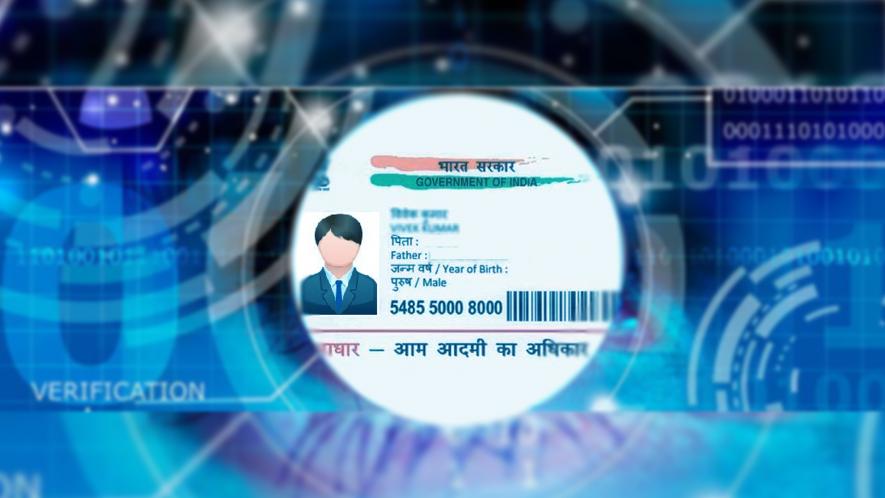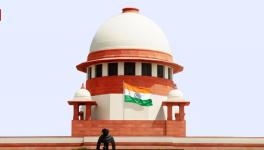A Bad Precedent for Money Bills

The Aadhaar Judgement on Wednesday has received mixed response. The 4:1 decision of the Supreme Court has received both commendation and condemnation largely based on its outcome vis-a-vis the Aadhaar project. Interestingly, the issue that has not quite been addressed in this is that of the Aadhaar Act being passed as a Money Bill. According to the majority decision, the question of whether the Act qualified as a Money Bill was rectified after the Court struck down the contentious portion of section 57 of the Act.
What Constitutes A Money Bill?
Article 110(1) states:
“Definition of Money Bill
(1) For the purposes of this Chapter, a Bill shall be deemed to be a Money Bill if it contains only provisions dealing with all or any of the following matters, namely
(a) the imposition, abolition, remission, alteration or regulation of any tax;
(b) the regulation of the borrowing of money or the giving of any guarantee by the Government of India, or the amendment of the law with respect to any financial obligations undertaken or to be undertaken by the Government of India;
(c) the custody of the consolidated Fund or the Contingency Fund of India, the payment of moneys into or the withdrawal of moneys from any such Fund;
(d) the appropriation of moneys out of the consolidated Fund of India;
(e) the declaring of any expenditure to be expenditure charged on the Consolidated Fund of India or the increasing of the amount of any such expenditure;
(f) the receipt of money on account of the Consolidated Fund of India or the public account of India or the custody or issue of such money or the audit of the accounts of the Union or of a State; or
(g) any matter incidental to any of the matters specified in sub clause (a) to (f)”
What becomes apparent from this provision is that Bill can be termed a Money Bill only if it fulfils the criteria laid down between subclauses (a) to (g). Anything beyond this scope would disqualify the Bill as a Money Bill. Clause (2), however, provides a further condition that:
“A Bill shall not be deemed to be a Money Bill by reason only that it provides for the imposition of fines or other pecuniary penalties, or for the demand or payment of fees for licences or fees for services rendered, or by reason that it provides for the imposition, abolition, remission, alteration or regulation of any tax by any local authority or body for local purposes”.
While clause (3) states: “If any question arises whether a Bill is a Money Bill or not, the decision of the Speaker of the House of the People thereon shall be final.”
What makes the issue of Money Bill contentious is that Article 109 of the Constitution prevents the Rajya Sabha from blocking a Money Bill. Hence, even if the Rajya Sabha has genuine reservation about the clauses contained in the Money Bill, they can only offer recommendations to the Lok Sabha, which the Lok Sabha is not bound to act upon.
Section 57 of the Aadhaar (Targeted Delivery Of Financial And Other Subsidies, Benefits And Services) Act, 2016
Section 57 of the Aadhaar Act states:
“Nothing contained in this Act shall prevent the use of Aadhaar number for establishing the identity of an individual for any purpose, whether by the State or any body corporate or person, pursuant to any law, for the time being in force, or any contract to this effect:
Provided that the use of Aadhaar number under this section shall be subject to the procedure and obligations under section 8 and Chapter VI.”
The petitioners used this provision to attack the Act’s passage as a Money Bill. The basis for the attack was that Article 110 relates to matters involving the Consolidated Fund of India. Whereas, a part of the section includes private entities as eligible to demand Aadhaar to establish a person’s identity.
Majority Decision
The respondents argued that section 7 of the Act is the soul of the legislation. Since this provision specifically mentions the Consolidated Fund of India, the Bill qualified as a Money Bill. Section 7 of the Act states:
“The Central Government or, as the case may be, the State Government may, for the purpose of establishing identity of an individual as a condition for receipt of a subsidy, benefit or service for which the expenditure is incurred from, or the receipt therefrom forms part of, the Consolidated Fund of India, require that such individual undergo authentication, or furnish proof of possession of Aadhaar number or in the case of an individual to whom no Aadhaar number has been assigned, such individual makes an application for enrolment:
Provided that if an Aadhaar number is not assigned to an individual, the individual shall be offered alternate and viable means of identification for delivery of the subsidy, benefit or service.”
The majority decision accepted the respondent’s interpretation that section 7 is the main guiding force behind the legislation. In this regard, the rest of the Act’s provisions were interpreted in the light of section 7. Hence, the purposes for which Aadhaar could be made mandatory would be only those in furtherance of section 7. However, section 57 was still a stumbling block as it enabled the private sector to demand Aadhaar as a proof of identity.
Interestingly, the majority dealt with the Money Bill issue after dealing with the constitutionality of section 57. At that point, they had struck down the portions of the provision pertaining to the private sector. Thus, while facing the Money Bill issue, the Court stated;
“In any case, a part of Section 57 has already declared unconstifwheretutional whereby even a body corporate in private sector or person may seek authentication from the Authority for establishing the identity of an individual.
… For all the aforesaid reasons, we are of the opinion that Bill was rightly introduced as Money Bill.”
The questions that emerge are: whether a defect that would disqualify a particular Act can be remedied at a later date? And whether in remedying the defect, the Act can be deemed to have been passed in a proper manner?
Justice Chandrachud’s Dissent
Justice Chandrachud took a different approach to the issue. Referring to the finality of the Speaker’s decision regarding whether a Bill was a Money Bill or not, Justice Chandrachud stated that the finality of the Speaker’s decision was only with respect to objections from the Rajya Sabha or the President. The matter is not immune from judicial review.
According to Justice Chandrachud, the bar on the Supreme Court deciding on matters of Parliament imposed by Article 122 is only limited to irregular procedure and not “when there is a substantive illegality or a constitutional violation”.
Justice Chandrachud further specified that for a Bill to qualify as a Money Bill, it must pertain only to the contents of subclauses (a) to (g) of Article 110(1). According to him, a Bill that contains provisions that fall outside this scope cannot qualify as a Money Bill. He further clarified: “[W]hen a Bill which has been passed as a Money Bill has certain provisions which fall beyond the scope of sub-clauses (a) to (g) of Article 110(1), these provisions cannot be severed. If the Bill was not a Money Bill, the role of the Rajya Sabha in its legislative passage could not have been denuded. The debasement of a constitutional institution cannot be countenanced by the Court.”
He directly contradicted the reasoning of the majority decision stating:
“… even if it is held that Section 7 bears a nexus to the expenditure incurred from the Consolidated Fund of India, the other provisions of the Act fail to fall within the domain of Article 110(1). Thus, the Aadhaar Act is declared unconstitutional for failing to meet the necessary requirements to have been certified as a Money Bill under Article 110(1).”
Implications of the Decision
Justice Chandrachud delivered a minority dissenting opinion in the case. This implies that as far as Money Bills are concerned, the majority decision is the current legal position. This sets an uncomfortable precedent, as the Rajya Sabha can be circumvented completely when a Bill is passed as a Money Bill. Even if there are portions of a Bill that disqualify it as a Money Bill, the Court can sever the offending portions, and the validity of the Bill’s passage will be deemed proper. Even if the Court’s decision on the other aspects of the Aadhaar case are not challenged, this particular point is one that needs to be urgently remedied.
Get the latest reports & analysis with people's perspective on Protests, movements & deep analytical videos, discussions of the current affairs in your Telegram app. Subscribe to NewsClick's Telegram channel & get Real-Time updates on stories, as they get published on our website.























